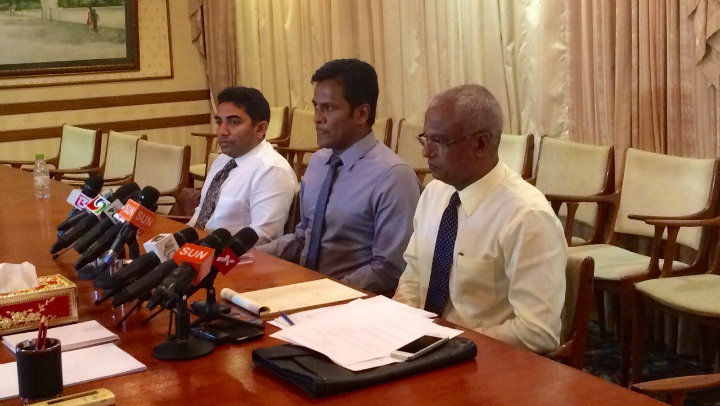MDP rejects government offer to discuss Nasheed’s terror conviction
The main opposition Maldivian Democratic Party has rejected an “exclusive meeting” proposed by the government “to explore avenues for the state for a leniency” on former President Mohamed Nasheed’s terror conviction.

07 Mar 2016, 09:00
The main opposition Maldivian Democratic Party has rejected an “exclusive meeting” offered by the government “to explore avenues for the state for a leniency” over former President Mohamed Nasheed’s terror conviction.
The MDP and its ally, the religious conservative Adhaalath Party, are demanding the release of jailed leaders as a confidence-building measure before they join government-initiated talks to end the Maldives’ political crisis.
President Abdulla Yameen had convened talks amidst mounting international pressure over human rights abuses. The embattled president has previously refused to address concerns over unfair trials claiming that his opponents were jailed by an “independent judiciary.”
The opposition has branded the talks a mockery and refused to attend two meetings held last week.
Become a member
Get full access to our archive and personalise your experience.
Already a member?
Discussion
No comments yet. Be the first to share your thoughts!
No comments yet. Be the first to join the conversation!
Join the Conversation
Sign in to share your thoughts under an alias and take part in the discussion. Independent journalism thrives on open, respectful debate — your voice matters.




